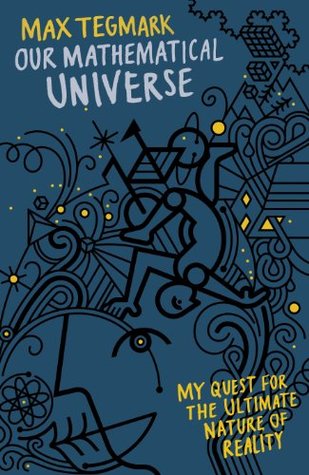More on this book
Community
Kindle Notes & Highlights
by
Max Tegmark
Read between
March 12 - April 4, 2018
(there’s about one atom for every two billion photons)—but
One unexplained Big Bang is bad enough; an infinite number of unexplained Big Bangs in perfect synchronization strains credulity.
I just can’t shake the uneasy feeling that I’m living in a Ponzi scheme of cosmic proportions.
students in Level I parallel universes would learn the same thing in physics class but different things in history class.
the scientific method doesn’t tolerate unexplained coincidences:
The main critique has shifted from “This makes no sense and I hate it” to “I hate it.”
Everything we call real is made of things that cannot be regarded as real. —Niels Bohr
Nicolas Valentino liked this
we can think of the fundamental Legos of particle physics as being not the particles themselves, but the conserved quantities!
particle physics is simply rearranging energy, momentum, charge and other conserved quantities in new ways.
every time something fundamentally random appears to happen to you, which couldn’t have been predicted even in principle, it’s a sign that you’ve been cloned.
quantum observation isn’t about consciousness, but simply about the transfer of information.
Nicolas Valentino liked this
“Quantum computers share information with huge numbers of versions of themselves throughout the multiverse,”
According to a recent estimate, more than a quarter of the U.S. gross national product is now based on inventions made possible by quantum mechanics, from lasers to computer chips.
consciousness is the way information feels when being processed in certain complex ways.
our observable Universe contains only about 1089 objects (mostly photons).
the Canadian-Australian mathematician Norman Wildberger has posted an essay arguing that “real numbers are a joke.”
the whole can contain less information than the sum of its parts—and sometimes even less than one of its parts!
apparently arbitrary initial conditions are caused by multiple universes, apparent randomness is caused by multiple yous.
the role of the simulating computer isn’t to compute the history of our Universe, but to specify it.
A collection of things can be simpler to describe than one of its parts.
Our multiverse is simpler than our Universe, in the sense that it can be described with less information,
Earth can be kept at constant temperature by gradually moving it out to a larger orbit around the warming Sun. Their basic idea is to nudge a large asteroid to fly very close to Earth every 6,000 years or so and give us a gravitational tug in the right direction.
the star Gliese 710 is predicted to pass within a light-year of us in about 1.4 million years,


